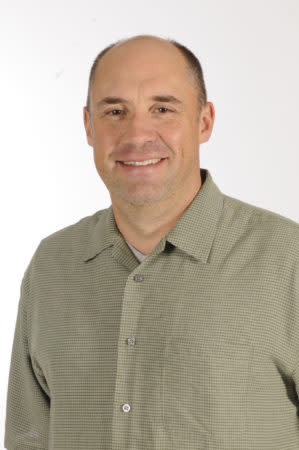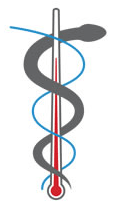STM November Webinar - "Hyperthermia enhances spatially-fractionated radiation and immunotherapy in pre-clinical tumor models"
Thursday, November 20, 2025 (10:00 AM - 11:30 AM) (EST)
Description
Join us for an insightful webinar with Dr. Robert J. Griffin, PhD as he discusses “Hyperthermia enhances spatially fractionated radiation and immunotherapy in pre-clinical tumor models."
Robert J. Griffin, PhD is a professor of Radiation Biology in the Department of Radiation Oncology at the University of Arkansas for Medical Sciences (UAMS). A large part of his research has involved characterizing the effects of thermal therapy at mild or ablative levels on the solid tumor microenvironment and how to exploit these effects to improve tumor control with various therapeutic modalities. He worked and completed a PhD in Biophysical Sciences with Dr. Chang W. Song in 1998 at the University of Minnesota and was subsequently an assistant professor in Therapeutic Radiology there. He moved to UAMS in 2006 as associate professor in the radiobiology division of the department of Radiation Oncology. He has been a member of the Society for Thermal Medicine since ~1995 and has published over 175 peer reviewed papers. Most recently, he has been working part time as vice president for small business development and faculty affairs in the technology transfer office at UAMS (BioVentures) and is helping lead a newly funded NIH/NCI R25 on Cancer technology commercialization training.
Investigations using nanomaterials (e.g., nanoliposomes and various nanomedicines) for targeted delivery to the tumor vasculature to improve responses to radiation, thermal treatment, or chemotherapy have been an additional focus in his research group. A related project was as principal investigator for a startup company at UAMS to develop a radiation-triggered liposome for tumor selective drug release with the support of an SBIR contract award from the NCI. The work in his research group has been supported by continuous funding from the NIH or NSF since 2004. In 2023-2024, Dr. Griffin was fortunate to receive a sabbatical fellowship from the Curie Institute and the University of Paris-Saclay to support a research project in Paris on spatially fractionated proton therapy and immunotherapy. He is a past President and program chair for the Society for Thermal Medicine and has served on various committees for STM, the American Society for Radiation Oncology (ASTRO) and the Radiation Research Society. Current editorial posts include Seminars in Radiation Oncology, associate senior editor for radiotherapy for Technology in Cancer Research and Treatment, Radiation Research, and section editor for biology for the International Journal of Hyperthermia.
Synopsis for the November webinar:
The webinar presentation will cover our work to understand the effects of mild and moderate local hyperthermia on the solid tumor microenvironment. Specifically, the data presented will be our recent work to incorporate hyperthermia into an immunotherapy regimen in combination with spatially fractionated radiotherapy (SFRT) in murine cancer models. Spatial fractionation is the delivery of highly heterogeneous radiation dose patterns to create high and low dose regions called peaks and valleys. The biological effects of this approach have been observed to be distinctly different than an equal average dose of radiation delivered homogenously across a tumor volume. The theorized mechanisms behind this include altered bystander cell killing between the high and low radiation doses as well as possible remote (abscopal) effects induced by cytokine or other bioactive molecules/chemical species secreted from the high dose areas. Other major areas that have been documented to contribute to SFRT effect are vascular damage/activation and possible induction of anti-tumor immunity.
Considering that all of the processes named above are likely affected by hyperthermic temperatures in vivo, we have studied the effect of 42.5°C local hyperthermia on the same day as SFRT is delivered, followed by our standard regimen of immunotherapy. The results have been dramatic in that nearly all tumors treated with hyperthermia, SFRT and immunotherapy were significantly regressed or delayed in regrowth compared to any of the single treatments, regardless of the sequence of heat and radiotherapy. Re-challenge experiments also demonstrated a durable immune response in a majority of the heat-treated tumors. In addition to our study data, broader concepts of using thermal dose/history to boost the ability of the host to activate immunity during cancer therapy in general will be discussed.
Images

STM Member - FREE
Non-Member - $25.00
The Webinar will run for approximately 90 minutes.
